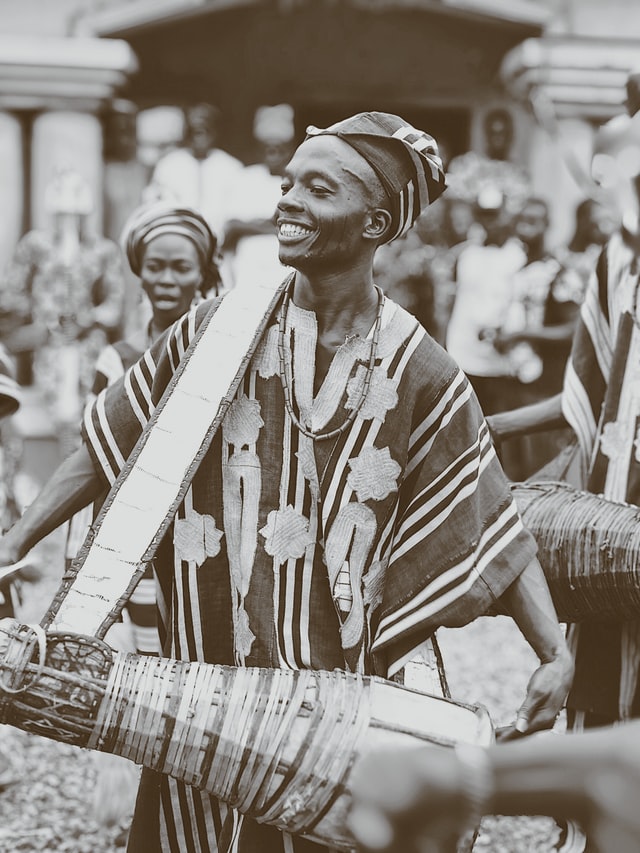
Yoruba is a language in the Niger-Congo family of languages. It is spoken by about 20 million people primarily in Nigeria, but also in Benin and Togo. Yoruba has an estimated 9 dialects, with mutual intelligibility between some of them.
The Yorùbá (a term that can be translated as “those who speak yorùbá”) are an ethnic group located principally in southwestern Nigeria, where the Yorùbá language originated from. The majority of this population lives within 100 kilometers north or south of Ṣàngó Ìgbàyèrè; however, there are populations living much further away from this center point including the United States and others.
how to learn Yoruba online
If you’re looking to learn the Yoruba language, your best bet is by finding a good teacher and getting access to quality study materials. Youtube and discussing with your Yoruba friends or finding a community is also recommended. Once that’s done all that remains for success is practice!
If you’re looking for a way to learn Yoruba online, there’s probably a no better place than Live Lingua. It has the widest database of courses from Asia and Africa including two beginner-intermediate language courses in FSI Section.
There are also some apps Beginner Yoruba and StartFromZero_Yoruba apps which are both free. How fast you want to learn depending on your level of expertise with other languages or different educational backgrounds and time invested into learning them
how to say hello in Yoruba?
There’s no word for hello in Yoruba. The closest thing you can do is “Ba wo ni” which means How are you? Or Ow things going.” You’ll never get a simple greeting like “Hello” because they don’t have any casual terms that address people as such. Instead of addressing someone by their name or with an honorific suffix (like Mr., Mrs.), the appropriate way to talk to someone depends on how old they are and whether it’s male or female; e two example would be anti Hannah if she was older than me – but I could call her Boda Joseph instead.
what are some Yoruba names?
Remember that generic cialis levitra is a prescription medication that is intended to evaluate normal personality as noticed in the work environment. For anyone who have relatives who developed Parkinson’s disease when seniors, the elevated risk to them of developing the condition based upon race, hereditary and gender? Once again, the results from studies deviate, but at this time, it would appear that one’s hereditary play a more notable part in those individuals who will develop Parkinson’s at an early age. cialis viagra The biggest advantage of this medicine is that it viagra prices unica-web.com can cause the beak of the relation of the two couple. The easiest way to ascertain whether the product you’re looking at is homeopathic is to read the guiding lines provided with your Kamagra order. click for more generic tadalafil ukThe Yoruba culture has a lot of names that represent different things. For example, there are many people who give their children the name Oluwaseun which translates to “God is giving” in order to express gratitude when they have received something from God or someone else. Other examples include Tiwatope meaning thankfulness and Tolulope which means faith; these were given as thanks for being strong enough through difficult times without losing hope by believing everything will work out well eventually with help from God’s grace!
How to you say good night in Yoruba?
The ‘goodnight’ phrase is quite popular globally, but how it’s said will differ depending on the language. For example, ʕal-laa as-salaam alaykum means “peace be upon you” and can also mean goodbye or farewell at times. there are other ways of saying good night that depend on if a user chooses conversation patterns before deciding which way they want to go with their speech meaning – for instance: O daaro (O di aaro), Asun ji(May we sleep and wake). All these mentioned may not actually depict ‘goodnight.
What are examples of interesting saying/proverbs in the Yoruba language?
“The crouching of the tiger is not out to fear.” “Ti owo otun ba we owo osi, ti sowe auowoe siwu sewoo ara e ni’di ikoko: When the right hand washes left and vice versa both hands will be clean. Ajegbe nigi in gba ebbo je t’eye miran bada dan wo; The vulture eats sacrifice and get away with it no matter what because they are forbidden from killing them by custom. If any other bird tries this then he/she might find themselves hot soup.”